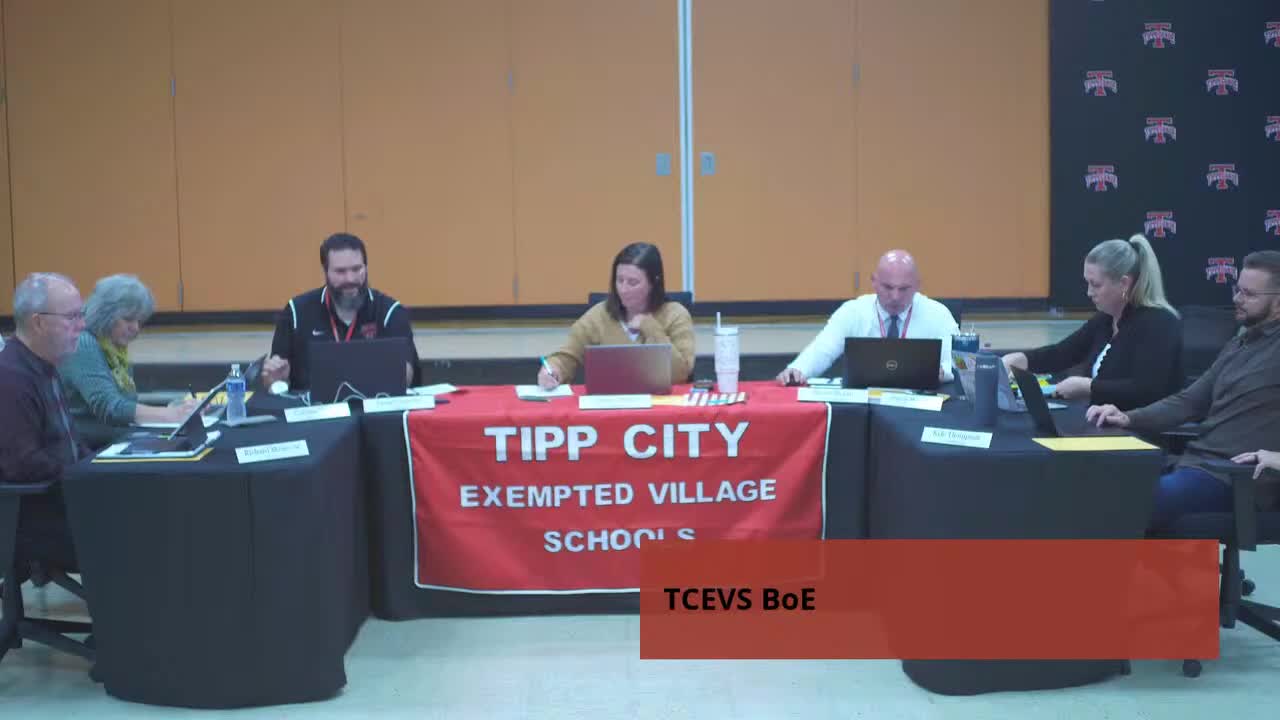Tipp City board hears update on state bills that could reshape property-tax levies and local school funding
Get AI-powered insights, summaries, and transcripts
Subscribe
Summary
A district staff member told the Tipp City Exempted Village Board of Education at a work session that several state-level proposals could materially change how local property taxes are collected and how the district is funded.
A district staff member told the Tipp City Exempted Village Board of Education at a work session that several state-level proposals could materially change how local property taxes are collected and how the district is funded.
The discussion centered on two bills the presenter named from the Ohio Legislature and on recent veto overrides, how converting older emergency levies to a fixed-sum format could preserve pre-2013 rollback credits for some levies, and on county-level recommendations to offset valuation-driven increases in tax collections.
"People are signing them to try to put an item on next year's ballot to eliminate property taxes altogether in the state of Ohio," the presenter said, describing petition activity and the range of revenue-replacement ideas being discussed at the state level.
Why this matters: the district relies on local property-tax revenue in its five-year forecast. The presenter said one of the district—s emergency levies carries the pre-2013 rollback credit while a smaller levy renewed in 2015 does not, and warned that losing the rollback credit would reduce revenue. The presenter estimated the district could lose about $500,000 in rollback credit if certain changes occur.
Key details from the briefing:
- House Bill 129: Presenter said HB 129, passed by the Ohio House, would allow emergency levies approved before 2026 to be reconceived as "fixed-sum" levies, a change that could preserve rollback credits for levies that originally received them. The presenter flagged that one local levy (renewed in 2015) does not have the pre-2013 rollback credit.
- Veto override and emergency levies: The presenter said the governor—s veto of a measure that would eliminate emergency levies was overridden, noting that emergency levies would no longer be allowable after the November election cycle under the overridden action as explained to the board.
- House Bill 309: The presenter warned that HB 309 (passed by the House) would grant county budget commissions greater authority to reduce local tax collections, potentially without local consent, by reclassifying or limiting what districts can collect.
- 20-mill floor and valuation effects: The presenter said Miami County valuations showed an average ~28% increase on reassessment and that, under the current calculation of the 20-mill floor, rising valuations can increase tax collections without a vote. The county auditor—s suggestion reported to the board was to reduce emergency-levy collections to offset the increased general-fund receipts so the overall ad rate change is net-zero for taxpayers.
- Replacement-tax proposals and equity concerns: The presenter described petitions and public proposals to replace property taxes with sales or income taxes. Board members raised concerns about shifting burdens to purchasers, to communities with low commercial activity, and to nonresidents who own rental property in Ohio.
Board reaction and next steps:
Board members expressed caution about issuing any broad public statement while the legislative picture is still fluid. Several members favored a short, high-level statement that the board is monitoring developments and has concerns about specific provisions, rather than an immediate county-wide joint letter. The presenter said county superintendents and treasurers planned to provide testimony to the county commissioners, and that she would continue to forward updates.
No formal motion or vote on a policy or public statement occurred during the session. The board directed staff to continue monitoring legislation and to return with updates as developments become more concrete.
